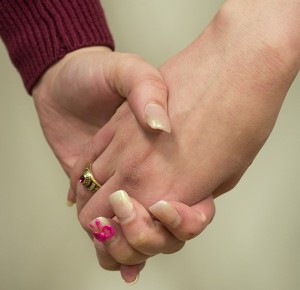Destiny Ross
There is an unnecessary war brewing in the minds of many Americans; and no, I am not talking about mental retaliation against the recent threats from North Korea.
The debate is between those who support the right of same-sex couples to marry and those who do not. Popular opinion on this issue has changed rapidly over the past few decades. It’s a debate that shouldn’t even be going on.
The Defense of Marriage Act’s (DOMA) time to shine (or fizzle out) was last Wednesday, as the Supreme Court heard United States v. Windsor, which found Section 3 of DOMA unconstitutional as it defines marriage as a legal union between one man and one woman.
The law was enacted in 1996 as backlash to the 1993 Hawaii State Supreme Court’s ruling that the state’s laws limiting marriage to opposite-sex couples was unconstitutional unless it could provide evidence justifying the ban.
Justice Kagan quoted the House Report saying that “Congress decided to reflect and honor of collective moral judgment and to express moral disapproval of homosexuality” by passing the piece of legislation during the hearing on Wednesday.
The President and Department of Justice refused to defend the law in court, so the task fell to the Republicans in the House.
Over 80 percent of people age 18-49 support the legalization of same-sex marriage, according to Chris Cillizza in a Washington Post article. As older generations age, they too are becoming increasingly receptive.
The majority of Americans recognize that same-sex couples are no different than heterosexual ones, and that they deserve the same rights, benefits and protections under the law.
To the country at large, gay marriage is a non-issue. Yet politicians in some states are still attempting to pass legislation that defines marriage as only between one man and one woman.
Marriage isn’t just a commitment between two people, it isn’t always religious, and it doesn’t have the sole purpose of procreation. It is an institution that, since its very beginning, has been about wealth transfer and property.
The federal government confers 1,138 benefits, rights and protections to people based on their marital status, according to hrc.org. As Justice Ginsburg said in the DOMA hearings, “[Marriage benefits] affect every aspect of life.”
Social security benefits such as spousal survival, spousal retirement and lump-sum death benefits are dependent on the federal government’s recognition of a couple, as is the ability to file a joint income tax return with the IRS.
Many of the estate tax exemptions (up to $3.5 million, also according to http://www.hrc.org) that heterosexual couples are able to utilize are not offered to homosexual couples. Spouses of deceased veterans and current military personnel are not entitled to the same health care, family separation pay or relocation assistance.
Employment benefits such as health insurance are not guaranteed for spouses, and neither are worker’s compensation or retirement plan benefits for a surviving spouse of a deceased worker.
A gay or lesbian U.S. citizen cannot sponsor their non-citizen spouse from overseas for a visa in the U.S. like heterosexual couples can, even if their state recognizes their union.
This isn’t a religious issue; it is a civil rights issue. It is a financial security issue, and a health issue. Every U.S. citizen should be given an equal opportunity to marry the person they want to: regardless of their gender.
Every U.S. citizen should be granted the same rights — equal rights — once they marry their partner. Not equal rights in some states, but rather in every state — it shouldn’t matter which state you live in.
A federal acknowledgement of same-sex unions is necessary. Anything less would be endorsing the marginalization and unequal treatment of a group of people based on their orientation. Anything less would be supporting the propagation of a “skim milk marriage.”




